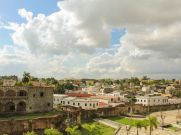This issue of Academic Questions is the first under a new group of editors. Stephen Balch, founder and president of the National Association of Scholars, has assumed the additional role of editor-in-chief. Peter Wood, recently appointed NAS Executive Director, is now the editor. Carol Iannone, who has for many years played a key role in producing the journal, remains editor-at-large. Felicia Sanzari Chernesky, who once before served as managing editor, has returned to that position.
One of our first decisions was to create from time to time thematically integrated issues of the journal. This departure from the past practice of producing issues that cover a variety of topics comes as part of a broader project to expand the intellectual scope of the National Association of Scholars. We believe there are important “academic questions” that have not yet been vetted in the pages of Academic Questions. We would like to explore the controversies within academic disciplines, especially when they shed light on the larger mission of the university. We also intend to examine aspects of the university that frequently escape intellectual inquiry, such as financial aid policies. We remain as concerned as ever with the marginalization of Western civilization in the curriculum and with threats to intellectual freedom, but we believe that the NAS should also seek out topics and themes that deserve more attention than the academy today gives them. One of our goals is to create vibrant issues of the journal that will appeal to new audiences.
You have in hand the firstfruits of this effort—an issue that explores the relation between the liberal arts and the military. We chose this subject because it struck us as important, interesting, topical, and underserved. In commissioning the articles, we instructed contributors to write for an audience of scholars who are not specialists in this field. We hope those readers who do happen to be specialists will appreciate the attempt to synthesize a broader view, while other AQ readers will enjoy the exploration of new terrain.
Is this issue of Academic Questions, taken as a whole, arguing a point about the military and the liberal arts? Yes, to a degree. The National Association of Scholars doesn’t have a foreign policy and we are not offering a prescription for the one right way for liberal arts education to take account of the military, or for military education to take account of the liberal arts. Rather, we are arguing more basic points: that liberal education in America ought to be mindful of the military as an institution indispensable to our republic; that the phenomenon of war is rooted deep in the human condition and therefore demands our attention; and that, on the whole, we are better served by an officer corps that possess the horizons of a liberal education than one that does not.
These strike us as not terribly controversial positions, but we advance them in recognition that the contemporary curriculum, the campus, and some of our scholarly societies lean the other way. In the “For the Record” section of this issue, we reprint statements from the American Historical Association, the American Anthropological Association, the American Psychological Association, the Modern Language Association, and the American Sociological Association, each of which has seen fit to do what we believe is inappropriate for ourselves, namely to take a position on a non-academic issue. Widespread campus opposition to the war in Iraq seems, in some cases, mixed with disdain for military history or the study of contemporary armed forces. Mark Moyar’s article on the historiography of the Vietnam War captures the settled disposition among many historians who view the study of the conduct of the war as mainly an occasion for moralizing.
While the U.S. military is often subject to academic derision, the larger picture is one of neglect. This point can be anchored with some instances. In 2004, the Roper Organization conducted a survey for the American Council of Trustees and Alumni that turned up such observations as “Only 2 in 3 graduates from the top fifty U.S. colleges and universities knew that Italy, Japan, and Germany were allies” in World War II. And only 37 percent could identify which war included the Battle of the Bulge.1 This amnesia is surely not entirely the fault of higher education. Students are prepared along the way with grade school and high school texts that have abundant detail on matters like the internment of Japanese Americans during World War II, but are exiguous on why, where, and how the nation’s wars were fought.2
But there is more to our decision to devote this issue of Academic Questions to the fraught connections between the liberal arts and the military than just our sense that the topic is underserved. We also speak for several compelling ideas that seem in need of a fresh hearing. These are: (1) the duty of liberal arts professors to be good stewards of the cultural legacy of Western civilization; (2) the obligation of humanists to consider carefully how war is rooted in human nature; (3) the need for educated Americans to comprehend the complex role the military has played in our nation’s history on and off the battlefield; and (4) the perennial search to reconcile the necessary martial qualities of the soldier with the no less necessary qualities needed to participate in a civic order. A few words about each of these.
Liberal education has, for most of its history, been mindful of military history and military institutions. It still would be difficult to claim a solid liberal arts education without some at least glancing knowledge of the Iliad and the Aeneid, poems that register vividly the central place of war in human experience. Not so long ago, every school child learning Latin would have encountered Ceasar’s The Gallic Wars and perhaps Tacitus’ military assessment of the German tribes. College students in general, not just classics majors, would have read Herodotus and Thucydides, and in reading them, reflected on Herodotus’ emphasis on the cultural basis of conflict among nations in contrast to Thucydides’ focus on the motives and talents of individual men.
While certain books on war are less central to the curriculum than they used to be, the exercise of arms is still a central human preoccupation. If children are not reading The Gallic Wars, they are raptly interested in the siege of Hogwarts in Harry Potter’s final battle with Lord Voldemart. If they are not reading Shakespeare’s Henry V or Carl von Clauswitz’s Vom Kriege, they are obliterating each other in Halo, the multi-player video game of heavily-armed futuristic soldiers.
This is to say that the untamed interest in war inevitably comes to college in the person of our students. It seems a poor choice simply to ignore this interest or, worse, to treat it as illegitimate. Our obligation rather is to channel that interest to the works of statecraft, literature, and philosophy that wrestle with the deeper questions of war and peace. There is no shortage of these works. Moreover, gaining intellectual and imaginative access to them would seem a precondition to understanding much of our civilization. Michelangelo’s David is not just a hymn to male beauty; it pictures David, stone in hand, about to commence his life as a warrior.
I once sat in on the class of a Czech defector teaching undergraduates how to read Machiavelli. He recited Shakespeare’s “Sonnet 66”:
Tired with all these for restful death I cry,
As to behold desert a beggar born.
And needy nothing trimmed in jollity,
And purest faith unhappily forsworn,
And gilded honour shamefully misplaced,
And maiden virtue rudely strumpeted,
And right perfection wrongfully disgraced,
And strength by limping sway disabled
And art made tongue-tied by authority,
And folly (doctor-like) controlling skill,
And simple truth miscalled simplicity,
And captive good attending captain ill.
Tired with all these, from these would I be gone,
Save that to die, I leave my love alone.
The poet’s despair isn’t obviously about war (though he lists among the causes “captive good attending captain ill”); it is Shakespeare’s exhausted account of the mendacity of the world that sends the merit begging and laughs at anguish. It is a picture of the world with no presiding moral order. I would say that the teacher who used this sonnet to open up Medician Florence and Machiavelli’s Italy offered a deep insight into that aspect of our civilization where real politics, war, and profound estrangement meet. Perhaps the larger point is that unless we take seriously the wars between cities, we are unlikely to see very deeply into the wars within ourselves. Can we read even so un-bellicose a writer as Virginia Woolf with any clarity without knowing the history of the First World War?
Art and metaphor aside, the history of the West remains a history of conquests and defenses. “History from below” has enriched our understanding of the often harsh experience that accompanied the pulses of growth and decline in our civilization, but we remain in lasting need of the larger narrative of Greek and Roman ascendancy, the barely successful repulse of Muslim invasions, and the wars that helped to create national identity. The larger narrative can be and often is taught in a manner that scants military tactics and strategies, but that’s a choice equivalent to teaching English without the verbs.
In this issue, three of our essays deal with aspects of how military history should be taught. Lieutenant General Josiah Bunting III offers a sober contrast between the vast popular interest in military history and the “indulged hatred of war and armies” that has all but banished military history from the curriculum. John Lynn also takes up the contrast between popular military history and two fields he calls applied and academic military history. The applied field, Lynn writes, concerns itself with improving the professional judgment of soldiers, and he quotes Napoleon on the merits of this study. Lynn’s view of academic military history is surprisingly optimistic, and he describes with approval the emergence of a “new military history” since the 1960s that brushes aside “campaign and battle histories” to deal with the institution of the military. Lynn descries two other developments: interest in technological innovations that revolutionized European warfare in the sixteenth and seventeenth centuries, and our new-found emphasis on “racism in the course of war.” Yet in the end, Lynn’s optimism for these other intellectual developments is eclipsed by his worry that “military history has been disturbingly abandoned by university historians in the United States.”
Our third contributor to weigh in on this is Barry Strauss, whose account of the ways in which military education was seamlessly integrated into ancient Greek and Roman life stands as a reminder of just how central military affairs once were to the life of our civilization. Well, perhaps not our civilization alone. As I write, archaeologists are reporting in Science on the new-found ruins in Range Creek Canyon, Utah, where a thousand years ago the so-called “Fremont people” built defensive fortifications on the inaccessible crags of buttes, far above their fields in the canyon floor.3
That brings me to the next proposition: (2) the obligation of humanists to consider carefully how war is rooted in human nature. War is a cultural universal. From time to time, an anthropologist or two has challenged this generalization. In1935, Margaret Mead returned from New Guinea with the tale of a mountain tribe, the Arapesh, who knew nothing of war. In 2003, anthropologist Paul Roscoe reported in the American Anthropologist what he found when he pored through the unpublished papers of Reo Fortune, Mead’s fellow anthropologist and husband during her Arapesh sojourn.4 Fortune, unlike Mead, was a careful empiricist, and he recorded that half of adult male Arapesh had killed people in war and at least 10 percent of all Arapesh deaths from 1900 to 1925 were casualties of war.
Any account of humanity that omits the topic of the military is dangerously misleading. Our students need to understand the human condition as it is, not just as we would like it to be. The Fremont people, incidentally, appear not to have been so worried about foreign invaders. They were defending themselves against each other.
We Americans are no exception to the general plight of humanity. Close on the heels of this proposition is the next: (3) all Americans, but especially those who aspire to be educated, need to comprehend the complex role the military has played in our nation’s history on and off the battlefield. Our nation was born in armed revolution; saw its capitol burnt by a foreign power; and endured a civil war of terrible ferocity. The character of our nation has been deeply influenced by its army and navy—and influenced in tangled ways that deserve the scholar’s, not the pundit’s, eye. Time and again, we have gone to war poorly prepared in the size and quality of our forces and with dull imaginations about what might happen next. We’ve courted catastrophes that have happily accepted our offer. And as a people we have both warmed to military heroes and shunned the military profession. Lieutenant Colonel Robert Bateman’s article is a bracing reminder that disdain for the military is nothing new in American life. The tensions go back to the beginning. Here in Princeton, the offices of the National Association of Scholars are just down the hill from Nassau Hall, which served as the capitol of the United States from June to November 1783, when the Continental Congress fled Philadelphia in fear of the (unpaid) soldiers of the U.S. Army.
On the ambiguity of military service in the United States, no writer surpasses Melville, whose novel Israel Potter recounts the life of an actual American soldier captured by the British and sent to England. He survives bleakly, year after year, futilely seeking some way home. At last, as an old man, he returns—only to find himself entirely forgotten. The real Israel Potter penned his life story, a large part of which Melville simply appropriated into his novel. Remembering our wars and forgetting those who fought them is more evidence that we do not stand far from the universal human condition.
But we do stand a little apart. We are overwhelmingly a civilian society and have made soldiering an increasingly rare profession. Most men and women in the United States will never serve in the armed forces, and only a small fraction will see combat. Yet our Constitution puts civilians firmly in control of the military. We rightly take this control seriously and engage in strenuous national debate over such matters as what weapons we should build, where and how our troops should be deployed, and what principles should guide our military conduct on and off the battlefield. It would seem indispensable that the civilians arguing these points have some grounding in the subject, and all the better if that grounding came in the context of history, philosophy, literature, political science, and other fields that help us frame the hard questions clearly.
Those are reasons why liberal arts students should encounter a curriculum that teaches something about war, military history, strategy, valor, technology, and so on. It would be incorrect to suggest that these topics are wholly absent from the curriculum, but their appearance these days is commonly by way of the assertion that war is always stupid, always wrong. Students should indeed encounter that view, but not that view in exclusion of all others.
The case for soldiers, or more particularly officers, receiving a liberal education, rests on the view that we want our officer corps prepared to make good decisions and mindful that they serve the civilian government, not just their military commanders. Thus (4): the perennial search to reconcile the necessary martial qualities of the soldier with the qualities needed to participate in a civic order. Two of our contributors cast light on this. West Point professor and U.S. Army Colonel David Bedey tells Carol Iannone that officers need to gain a form of “intellectual sophistication” that comes from the liberal arts to prepare them for “strategic leadership” and instill appreciation for the civilization they are to protect. And Lieutenant Colonel Bateman’s article refers us back to World War I, when the acute shortage of officers trained in the military academies prompted the creation of the first ROTC programs. The military then judged that effective officers could best be raised from men already in pursuit of a higher education, and while this should not be conflated with a fondness for the liberal arts, it was at least a policy that treated liberal arts on a par with technical degrees.
The question of how best to educate military leaders has been going on for centuries, the most recent installment appearing in the journal the American Interest, where General David Petraeus and Lieutenant Colonel Ralph Peters traded essays. Petraeus begins his essay with the declaration that “the most powerful tool any soldier carries is not his weapon but his mind.” Peters, however, shudders at the thought of eggheads in charge of the cavalry: “too much formal education clouds a senior officer’s judgment.”5 It’s an old argument. El Cid, the eleventh-century Castilian nobleman famed for battles against the Moors, sent stentorian voiced readers among his soldiers to read aloud Greek and Roman classics. The technique did not seem to cloud anyone’s mind: El Cid’s battlefield successes were built on dazzling tactical innovations.
We hope these articles will provoke debate. We hope as well that our readers will seek out opportunities of their own to raise questions about the university’s inattentiveness to military institutions and history. At the moment the odds look much better that the military will prize liberal education than that the liberal educators will prize the military, but there is a strong case for both.
1 Gail Russell Chaddock, “Not Yet Forgotten, the ‘Greatest Generation’ Finally Set in Stone,” Christian Science Monitor, 27 May 2004.
2 We owe our knowledge of this to the somewhat eccentric Texas couple, Mel and Norma Gabler, who through their self-created Educational Research Analysts, spent many years combing through textbooks in search of various biases. The Gablers were exercised by some matters that were no more than cultural lint, but their attention to detail is not to be underestimated. In reviewing an eighth grade textbook, Literature: The Reader’s Choice, they note for example: Multiple references to U.S. relocation of Japanese Americans during WWII; silence on WWII massacres by Japanese in China, and the Bataan death marchp. 26, col. 2, par. 5, lines 1-5p. 32, col. 1, bottom 2 lines—col. 2, line 1p. 34, col. 2, par. 2, lines 5-6 Mel Gabler died in 2004 at age eighty-nine; Norma Gabler died in 2007 at age eighty-four; ERA continues.
3 Keith Kloor, “The Vanishing Fremont,” Science, 7 December 2007, 1640–43.
4 Paul Roscoe, “Margaret Mead, Reo Fortune, and Mountain Arapesh Warfare,” American Anthropologist, 105 (September 2003): 581–91.
5 The issue of the American Interest (July/August 2007) in which this exchange occurred was discussed by Elizabeth Samet in a recent interview on PBS with Jeffrey Brown. Samet is the author of a new book that bears on these matters, Soldier’s Heart: Reading Literature through Peace and War at West Point (Farrar, Straus and Giroux, 2007). In his interview in this issue, Colonel Bedey also references the American Interest essays.














